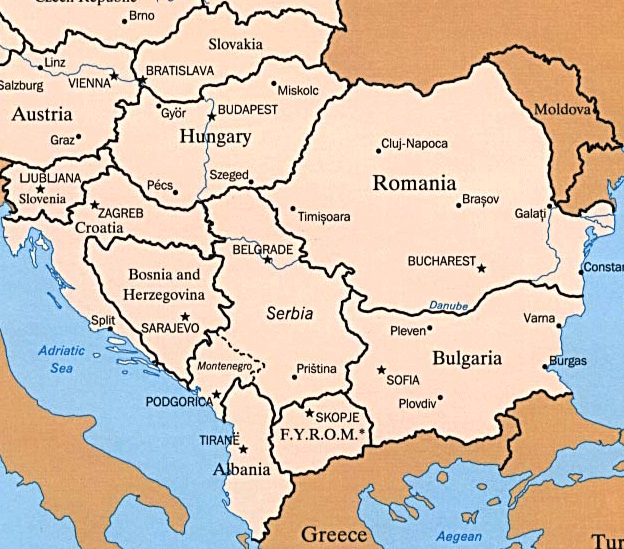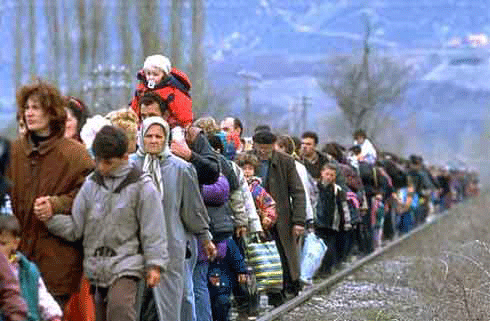

Balkans & Cyprus
For centuries, the problems in the Balkan region involve a large number of mixed minorities. The countries that exist in the Balkans are Albania, Bosnia and Herzevogina, Bulgaria, Croatia, Greece, the Republic of Macedonia, Serbia and Montenegro, and Turkey. Other countries sometimes included in this list are Moldova, Romania, and Slovenia. The cause of WWI was the assassination of Austrian Archduke Franz Ferdinand who was killed by a Bosnian nationalist. This was the long overdue eruption of ethnic divisiveness and nationalist tension. Between 1991-2001, Yugoslav Wars occurred in the region, in which the ethic peoples of the former Yugoslavia conflicted with one another mainly resulting from political and cultural causes and also the fear of Serbian dominance in the region. When the Yugoslav Wars ended, seen as the genocidal wars since WWIII, 300,000 people were killed. The entire region was economically ruined and instability became rampant. Presently, much of the tension and conflict remain unresolved. Cyprus is an influential country next to the Balkans and plays a major role in Balkan conflict. Currently Cyprus is divided between the Greek Cypriots and the Turkish Cypriots. The island is also divided into the internationally recognized Republic of Cyprus, while the Turkish Republic of Northern Cyprus is only recognized by Turkey.